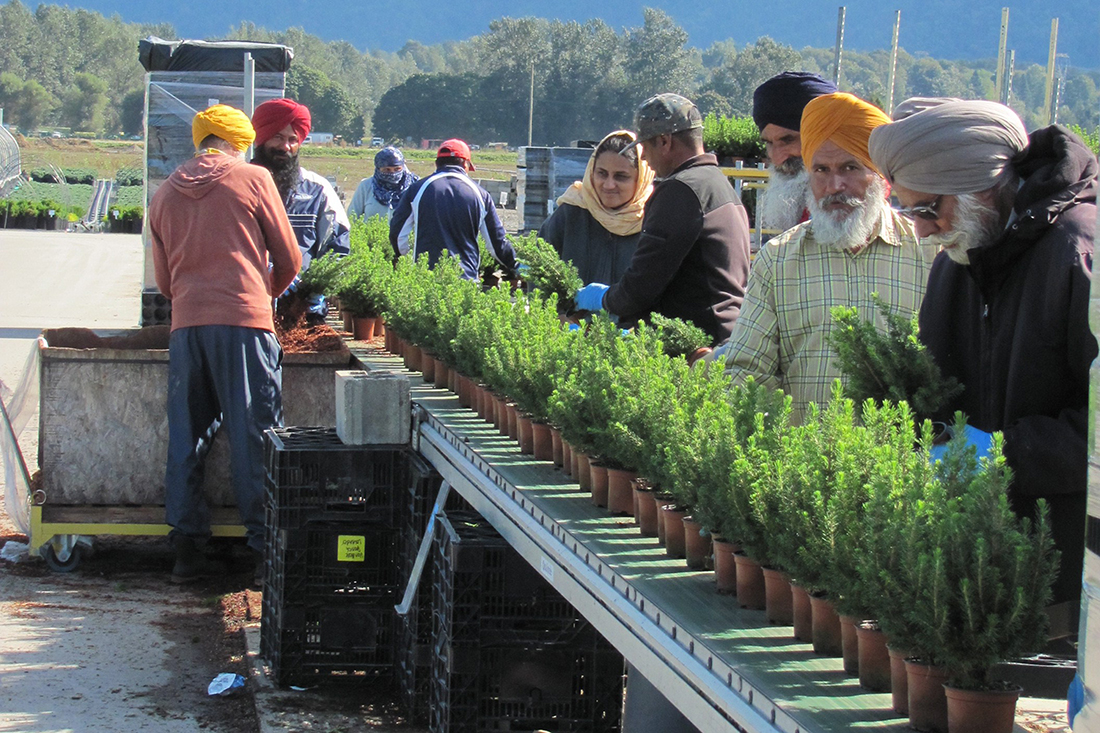Developing new markets and enhancing fruit quality are top of mind for the close to 500 people attending the International Blueberry Organization summit in Richmond this week.
Growing demand for blueberries has seen production increase worldwide to more than a billion pounds, according to a state of the industry report presented this week. The top 10 producers represent more than 88% of the total, but this has slipped as plantings have increased.
To maintain the quality of fruit reaching consumers, some grocers in the UK have chosen to buy specific varieties that pose the least risk of disappointing consumers. The practice hasn’t caught on in BC, where consumers will opt for local first over imports.
“We’re all very optimistic when we look at the sales of blueberries going through the roof, but there are certain areas where the future doesn’t look bright,” said Steve Taylor, managing director of Winterwood Farms Ltd. in the UK, noting that consumers no longer want Elliott and other late-season varieties. “The customers no longer want that now. They’ve swapped to Peruvian and South African fruit and they’re willing to pay more money for that fruit. It’s not a question of new varieties being planted. That market’s now gone.”
But local still rules in BC, said Brad Olsen, a customer product manager overseeing produce for Save-On-Foods. This is a direct response to consumer demand, he explained.
“As long as we have BC-grown product, or Canadian-grown product, we’ll look after our economy and our farmers here before we go outside,” he said, to audience applause.
But Tom Richardson, vice-president, global development with Giumarra Cos. of California said growers need to be aware of the big picture. BC, for example, sells just 30% of its crop locally, meaning it’s hugely dependent on the rest of North America and Asia.
“While your local folks may support the industry, if you lose the Asia market as a BC grower, if you lose the North America market as a BC grower, come the end of August when big, firm, sweet crunchy blueberries that are 22 mm. on average arrive to market and you’re selling Elliotts or Auroras, I’m just telling you folks that you’re going to have some challenges,” he said. “The retailers outside Canada are going to choose that big, bloomy blueberry over Elliott seven days out of seven.”
SIGN UP FOR FREE FARM NEWS UPDATES DELIVERED TO YOUR INBOX EVERY WEDNESDAY MORNING.


 Long-term labour demand eases
Long-term labour demand eases